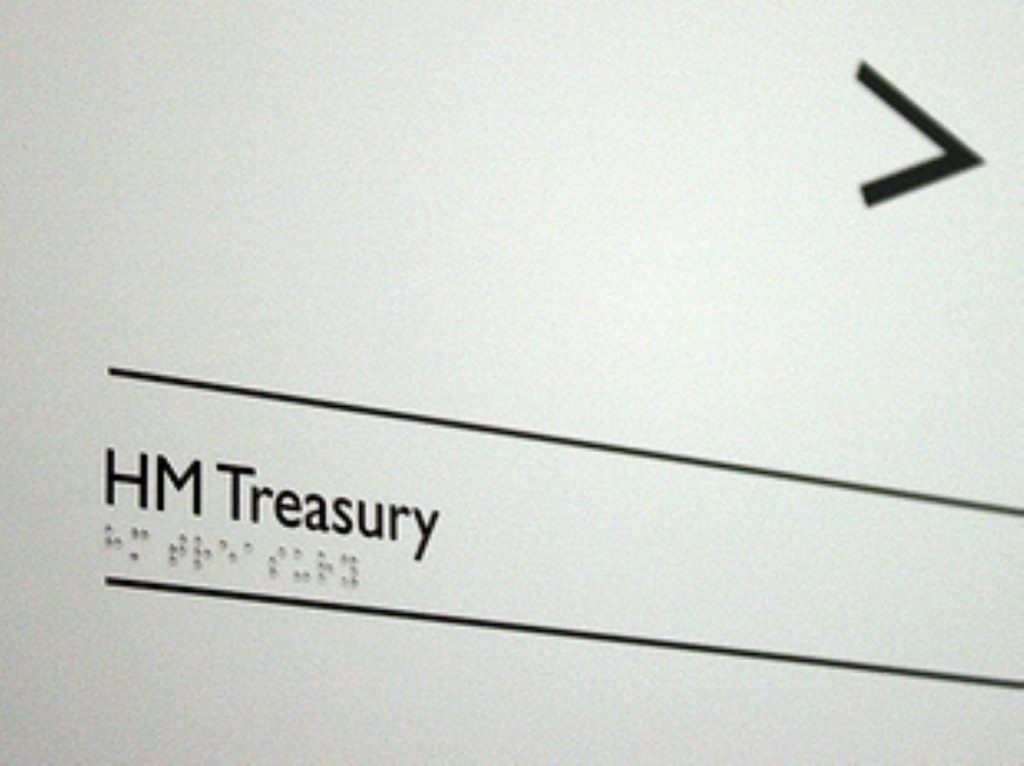Analysis: ‘Shockwave’ cuts are a long-term gamble
The new government’s honeymoon was always going to be imperilled by the spending cuts now being implemented. This is just as well, as its focus is firmly away from the electorate.
At the moment, all we have are numbers. There were a lot of them this morning: hundreds of millions of pounds being culled in departments across Whitehall as George Osborne and David Laws introduced “draconian” budget reductions.
“Unless we send this shockwave,” the chief secretary to the Treasury explained grimly, “you won’t get the step-change in behaviour we expect.”


He and the chancellor are taking no chances. They are forming an Efficiency and Reform Group to extend No 11’s control over the government. But there is only so much they can do to ensure the reductions do result in waste-cutting rather than service-cutting. Government departments, let alone local authorities, have a habit of doing all they can to wriggle away from the domineering Treasury.
This unpleasant truth was reflected in the admission, revealed reluctantly throughout the morning, that the Treasury simply doesn’t know how many jobs will go as a result of these cuts. When the government invests it is happy to let the public know how many jobs have been created or protected. Yet now it finds it hard to calculate how many jobs will go.
This is understandable in practical terms. Individual departments must work out precisely how they will wield the axe. But it is politically awkward: it is what people care about. What will the cuts mean for the many public and private sector workers who rely on the government?
The negative connotations for the coalition government’s popularity are obvious, so it was no surprise to see Osborne and Laws scramble to explain the positive reasons for the cuts.
“We are doing this for a reason,” Osborne explained. “Controlling spending is not an end in itself. The savings we have identified enable us to commit to avoiding the previous government’s jobs tax, due to come into effect next year.”
Yet this was underplayed during today’s press conference. Apart from a brief mention the bid to avoid Labour’s planned increase in national insurance for employers was hardly touched on. Instead Osborne sought to focus on the intangible benefits which dealing with the deficit would have on the economy.
“Our belief is that by showing Britain can live within its means we will actually be increasing employment,” the chancellor said. Voters are unlikely to be impressed by this logic.
What prompted this emphasis? Perhaps it was because the main focus was on seeing through the cuts – and not focusing on the consequences. Several times Osborne and Laws admitted relief at being able to achieve this level of cuts after just a week’s frenetic work.
Having completed the job at 23:45 GMT on Friday evening, they were free to admit the anxiety which had haunted them before the job was complete. As Osborne said, it had been “ambition”; now it is reality. “The big difference is we actually cut the budgets in these departments,” Laws said proudly.
Perhaps it is because the new government knows that the cuts will be unpopular. Yesterday deputy prime minister Nick Clegg articulated the fundamental acknowledgement from those within power that they are likely to be punished by their approach.
“These are difficult decisions. No one, myself included, went into politics to deliver cuts. But we all know it’s going to be difficult – and it’s going to be controversial,” Clegg acknowledged on BBC1’s The Andrew Marr Show yesterday.
“The basis on which to judge the success of this coalition is to see after five years whether Britain is fairer… and a new approach to the economy. That will take time.”
After two weeks in office, May 7th 2010 seems a very long way away.
The shrinking, uncomfortable feeling which the chancellor felt when he attended meetings of European finance ministers last week sums up the real reason for the approach revealed in full today.
“I could not help but be conscious that I represented the country with the biggest budget deficit of all,” Osborne said. This anxiety is the real reason for the apparent lack of focus on the voters.
The simple truth that Osborne and Laws’ real audience lies elsewhere. The election is over. It is the markets which this pair care about now.
They are desperate to win the confidence of the City and are doing so by acting in ways which the financial sector, not voters, will find most attractive.
They are hoping their “draconian” measures will pay off on polling day in five years’ time. Like the coalition government in which they find themselves, it’s a long-term gamble in which success is far from guaranteed.

